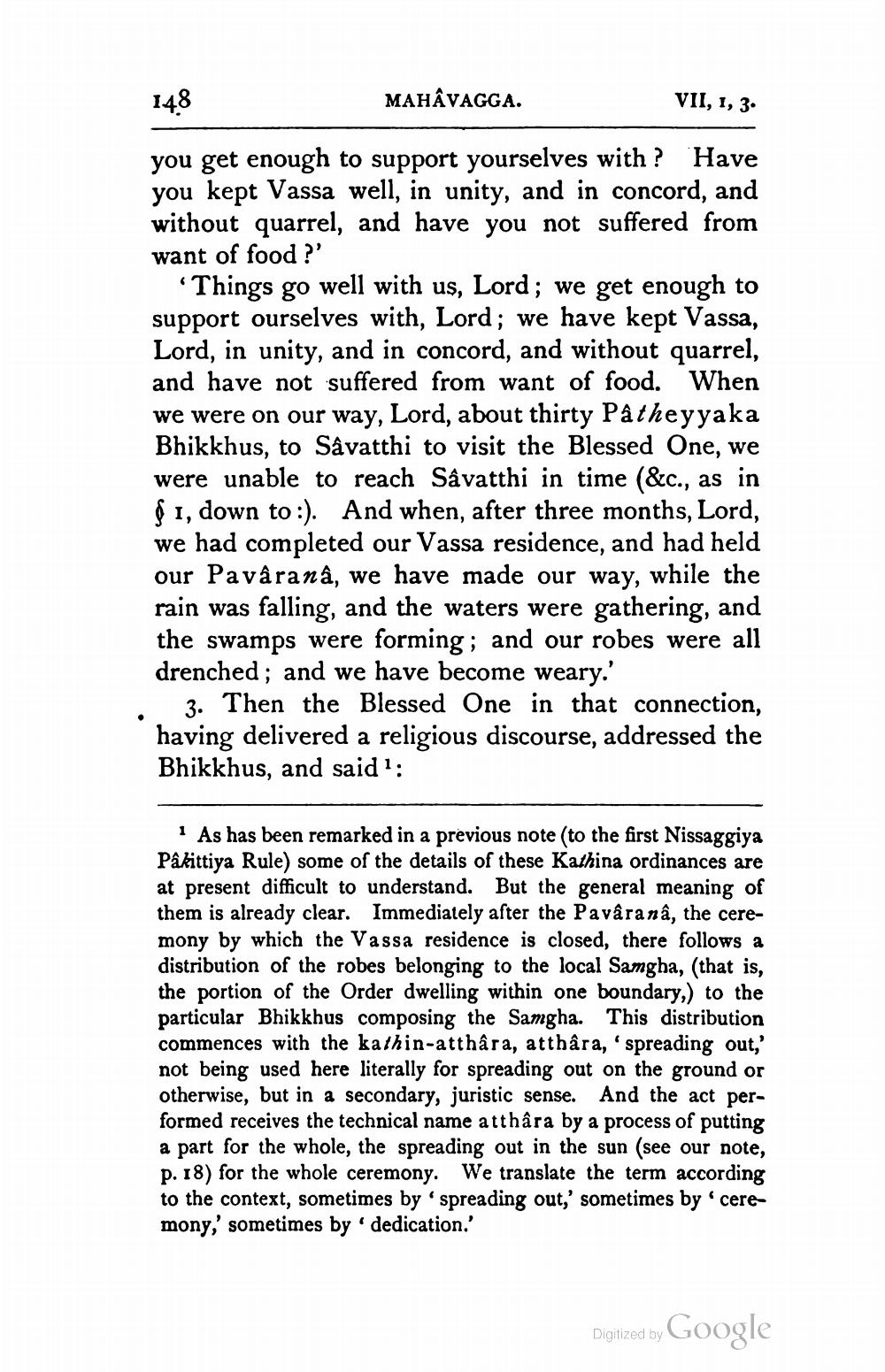________________
148
MAHẬVAGGA.
VII, 1, 3.
you get enough to support yourselves with ? Have you kept Vassa well, in unity, and in concord, and without quarrel, and have you not suffered from want of food ?'
'Things go well with us, Lord; we get enough to support ourselves with, Lord; we have kept Vassa, Lord, in unity, and in concord, and without quarrel, and have not suffered from want of food. When we were on our way, Lord, about thirty Patheyyaka Bhikkhus, to Sâvatthi to visit the Blessed One, we were unable to reach Sâvatthi in time (&c., as in $ 1, down to:). And when, after three months, Lord, we had completed our Vassa residence, and had held our Pavâranâ, we have made our way, while the rain was falling, and the waters were gathering, and the swamps were forming; and our robes were all drenched; and we have become weary.'
3. Then the Blessed One in that connection, having delivered a religious discourse, addressed the Bhikkhus, and said 1:
As has been remarked in a previous note (to the first Nissaggiya Pakittiya Rule) some of the details of these Kathina ordinances are at present difficult to understand. But the general meaning of them is already clear. Immediately after the Pavâranâ, the ceremony by which the Vassa residence is closed, there follows a distribution of the robes belonging to the local Samgha, (that is, the portion of the Order dwelling within one boundary,) to the particular Bhikkhus composing the Samgha. This distribution commences with the kathin-atthâra, atthâra, 'spreading out,' not being used here literally for spreading out on the ground or otherwise, but in a secondary, juristic sense. And the act performed receives the technical name atthâra by a process of putting a part for the whole, the spreading out in the sun (see our note, p. 18) for the whole ceremony. We translate the term according to the context, sometimes by 'spreading out, sometimes by 'ceremony, sometimes by ' dedication.'
Digitized by
Digitized by Google




